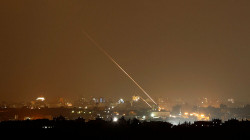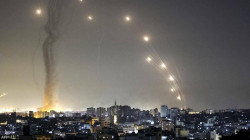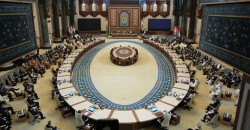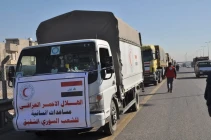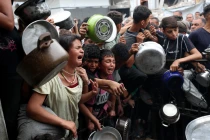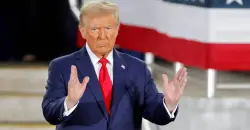Baghdad Summit under Gaza's Shadow: Arab leaders demand ceasefire
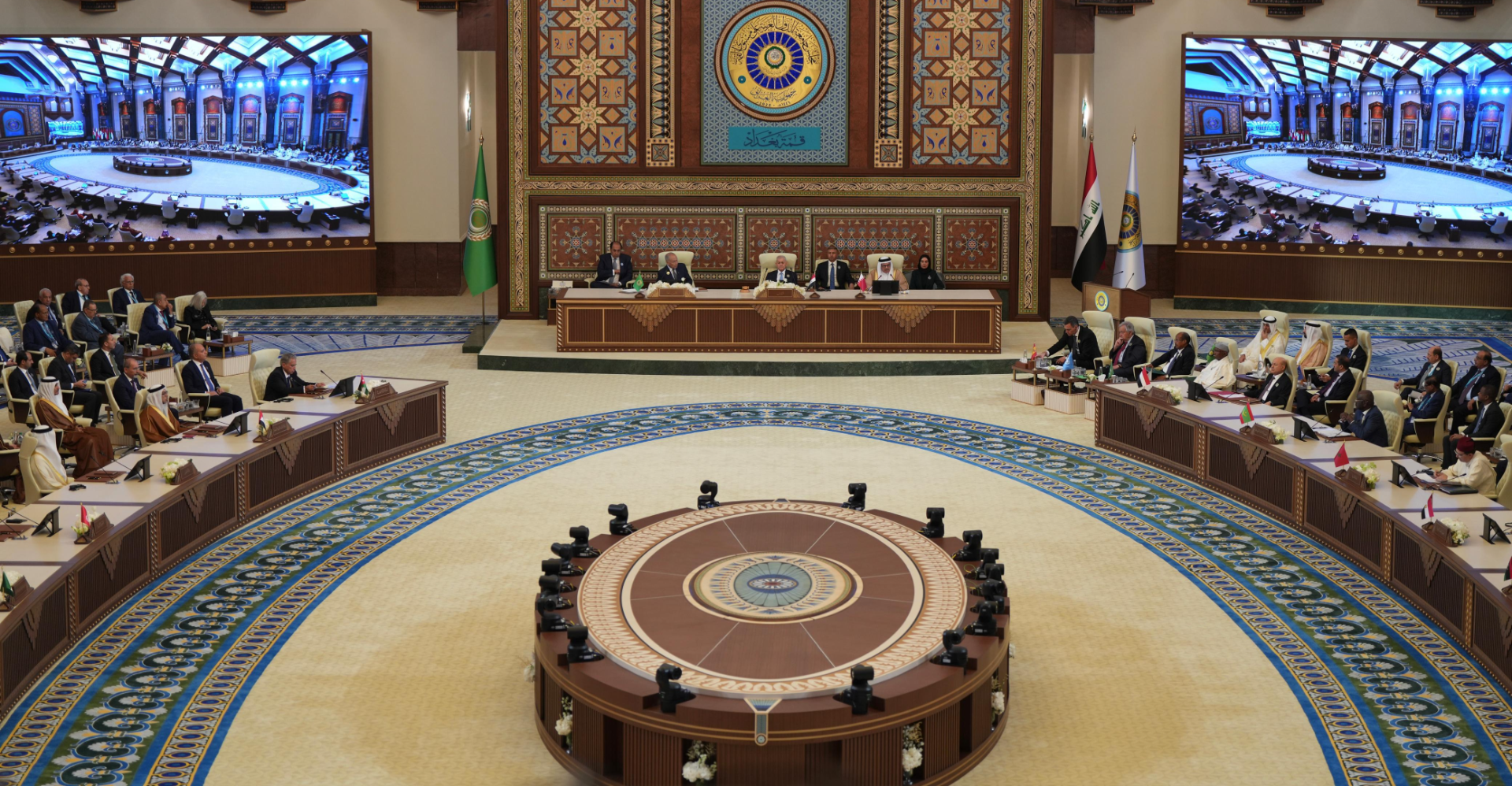
Shafaq News/ The Iraqi capital, Baghdad, hosted the 34th Arab League Summit on Saturday, bringing together regional and international leaders to discuss a broad range of pressing issues, with the war in Gaza dominating the agenda.
Iraqi President Abdul Latif Rashid, Prime Minister Mohammed Shia al-Sudani, and Kurdistan Region President Nechirvan Barzani represented the country.
According to the Kurdistan Region Presidency, Barzani’s participation signaled “a clear sign of the Region’s active presence in regional dynamics and within Iraq’s federal framework.”
The summit witnessed the participation of over 20 Arab League member states, alongside notable international representatives. UN Secretary-General António Guterres, Spanish PM Pedro Sanchez, European Union officials, and Russian Deputy Foreign Minister Mikhail Bogdanov were among those in attendance.
Prominent Arab leaders included Palestinian President Mahmoud Abbas, Egyptian President Abdel Fattah el-Sisi, and Emir of Qatar Sheikh Tamim bin Hamad Al Thani.
Syria was represented by Foreign Minister Asaad al-Shibani in the absence of transitional President Ahmad al-Sharaa.
Other key arrivals included Mauritanian President Mohamed Ould Ghazouani, Somali President Hassan Sheikh Mohamud, UAE Vice President Mansour bin Zayed Al Nahyan, Kuwait’s Foreign Minister Abdullah Ali Abdullah, Morocco’s Foreign Minister Nasser Bourita, Algeria’s Foreign Minister Ahmed Attaf, and Saudi Foreign Minister Faisal bin Farhan.
Additional attendees included Bahraini Foreign Minister Abdullatif bin Rashid Al Zayani, Lebanese Prime Minister Nawaf Salam, Jordanian Prime Minister Jafar Hassan, Omani Deputy Prime Minister Shihab bin Tariq al-Said, Sudan’s Assistant Commander-in-Chief Ibrahim Jaber, and Yemeni Presidential Leadership Council Chairman Rashad Mohammed Al-Alimi. Tunisia, Djibouti, and Comoros were also represented at the ministerial level.
From the regional institutions, Arab League Secretary-General Ahmed Aboul Gheit, GCC Secretary-General Jassem Mohamed Albudaiwi, and the Secretary-General of the Organization of Islamic Cooperation Hissein Brahim Taha also attended.
Key Topics Discussed
Gaza and the Palestinian Cause
The summit’s central focus was the unfolding humanitarian crisis in Gaza. Arab leaders called for an immediate ceasefire and the establishment of a credible political framework for peace. The meeting came amid the launch of Israel’s multi-stage operation “Chariots of Gideon,” which has reportedly resulted in at least 153 deaths in the past 24 hours, including 60 since dawn Saturday.
Palestinian President Mahmoud Abbas issued a stark warning, calling the situation an “existential threat” to the Palestinian cause.
“There must be one legitimate authority and one security apparatus,” he said, urging Hamas and other factions to relinquish arms and allow the Palestinian Authority to assume full control.
Arab League Secretary-General Ahmed Aboul Gheit denounced Israel’s military actions as “reckless and aggressive,” warning they posed a serious threat to regional stability.
UN Secretary-General António Guterres firmly rejected any efforts toward the forced displacement of Gaza’s population.
Syria’s Reintegration and Sovereignty
Syrian Foreign Minister Asaad al-Shibani addressed attempts to destabilize Syria, warning of foreign interference and the exploitation of ISIS remnants for political and security leverage. He also highlighted ongoing efforts to reassert Syrian sovereignty and welcomed the easing of US sanctions and Syria’s return to the Arab diplomatic fold.
Arab leaders welcomed Damascus' reintegration into the Arab world and the lifting of US sanctions.
Yemen’s Protracted Conflict
No participating state expressed support for the Houthi movement. Yemeni Presidential Leadership Council Chairman Rashad Al-Alimi warned that the Houthis represent a cross-border threat to regional and international peace. He called for unified efforts to dismantle their military influence.
Aboul Gheit also criticized the group for prolonging the conflict, saying, “There will be no real stability in Yemen unless the Houthis abandon violence and illegitimate power grabs.” He urged renewed diplomatic efforts to resolve the crisis.
Lebanon’s Stability and Sovereignty
Lebanon’s fragile security and political landscape were also a point of concern. Leaders voiced alarm over the uncontrolled proliferation of weapons and stressed the need to support Lebanese state institutions.
Prime Minister Nawaf Salam called for international pressure on Israel to withdraw from the occupied Lebanese territories. He affirmed Lebanon’s full commitment to UN Security Council Resolution 1701 and the 2006 ceasefire agreement.
Regional Security and Economic Integration
The summit also tackled wider issues of regional security, emphasizing counterterrorism coordination, intelligence sharing, and economic cooperation. Iraqi leaders advocated for enhanced trade partnerships and pan-Arab infrastructure projects as tools to boost integration and development.
